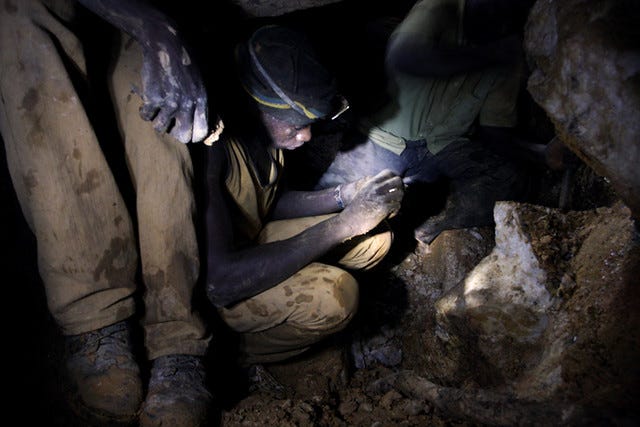8 workers trapped in Canadian-owned Burkina Faso mine
Three-quarters of the world's mining companies are based in Canada

Eight miners have been trapped underground for more than three weeks in a Burkina Faso mine owned by Vancouver-based Trevali Mining, but coverage in the Canadian media has been scant.
The Globe and Mail is the only newspaper in Canada with a reporter on the ground in the entire continent of 1.2-billion people — Africa bureau chief Geoffrey York, who is white.
York first reported on the story May 8, which appeared in the Globe’s Report on Business ‘B’ section. While reporters don’t get to decide where in the paper their stories are printed, a story’s placement is revealing of which stories editors prioritize for public consumption.
York writes in his 660-word piece:
The workers have been trapped for more than three weeks at the Perkoa mine in Burkina Faso, after heavy thunderstorms triggered flash flooding on April 16. They are believed to be about 550 metres below the surface, with possible access to an emergency chamber at a depth of 580 metres.
High-capacity pumping equipment from Ghana was trucked to the mine late last week, and more pumps are scheduled to arrive by plane from South Africa this week. Burkina Faso’s government said it has also received offers of technical help from Morocco and the European Union…
The mine is 90-per-cent owned by Vancouver-based Trevali Mining Corp., which acquired it and a mine in Namibia in a US$400-million deal with Glencore in 2017.
Six of the eight miners are from Burkina Faso, while the other two are from Zambia and Tanzania. Burkinabe Prime Minister Albert Ouedraogo has blamed the disaster on the “irresponsibility” of mine management, who are prohibited from leaving the country until a government investigation is completed.
Calgary-based Toronto Star reporter Alex Boyd covered the disaster on May 9, dedicating 1,000 words to it.
“In comparison to other cases of trapped miners that have amassed international attention, the case has garnered relatively little notice outside of Burkina Faso, where it is being watched closely,” Boyd noted.
While York’s story only quoted representatives of Trevali and the Burkinabe government, Boyd spoke to a representative of the NGO MiningWatch Canada, who said it’s unclear whether Trevali’s management in Burkina Faso had adequately prepared for a “worst case scenario.”
Reuters, whose parent company Thomson Reuters is based in Toronto but is itself based in London, U.K., covered the story last week, dedicating just over 300 words to it. This piece ran on CBC News’s website, as well as Radio Canada International.
CTV News hasn’t run anything on the miners, but did publish an Associated Press (AP) wire story on April 26 warning of “jihadi violence” in Burkina Faso. A search for ‘Burkina Faso’ on Global News’s website turned up zero results.
Undoubtedly, if the miners were Canadian (or white), we would have non-stop coverage. Despite a Canadian company’s potential culpability in the disaster, the misfortunes of eight African workers isn’t seen as particularly newsworthy.
By contrast, the case of 39 miners trapped in Sudbury’s Totten Mine for four days in September 2021 had multiple stories written about it at CBC News, Global News, The Canadian Press, Postmedia, the Toronto Star and Globe and Mail.
Canada is home to 75% of the world’s mining companies — a fact the vast majority of Canadians are likely unaware of.
“If you want to register a ship for transport, you go to Liberia; if you want to play the stock market in a very aggressive manner, you go to the Cayman Islands,” Montreal-based author and researcher Alain Deneault told the Guardian in 2017. “If you aim to create a mining company, you go to Canada.”
The owners of Canadian mining companies would rather you not take a close look at what goes on at their mines in the developing world, which is precisely why it’s the media’s responsibility to do so.
I asked Global Affairs Canada whether the Canadian government plans to assist with finding the miners and what will happen if the Burkinabe investigation finds Trevali responsible for the disaster.
In response, a spokesperson provided a generic statement:
Global Affairs Canada is aware of this mining incident in Burkina Faso.
We are closely monitoring the situation and are in contact with local authorities.
Edited by Ximena González



